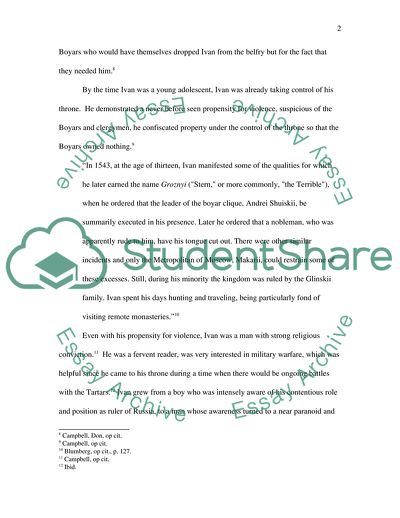Cite this document
(Ivan the Terrible Essay Example | Topics and Well Written Essays - 2250 words, n.d.)
Ivan the Terrible Essay Example | Topics and Well Written Essays - 2250 words. https://studentshare.org/biographies/1716568-ivan-the-terrible
Ivan the Terrible Essay Example | Topics and Well Written Essays - 2250 words. https://studentshare.org/biographies/1716568-ivan-the-terrible
(Ivan the Terrible Essay Example | Topics and Well Written Essays - 2250 Words)
Ivan the Terrible Essay Example | Topics and Well Written Essays - 2250 Words. https://studentshare.org/biographies/1716568-ivan-the-terrible.
Ivan the Terrible Essay Example | Topics and Well Written Essays - 2250 Words. https://studentshare.org/biographies/1716568-ivan-the-terrible.
“Ivan the Terrible Essay Example | Topics and Well Written Essays - 2250 Words”. https://studentshare.org/biographies/1716568-ivan-the-terrible.


